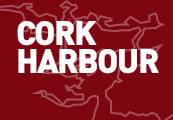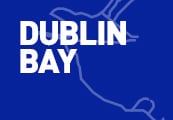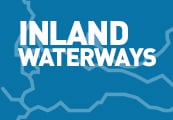Displaying items by tag: COP27
The Ocean Race Boosts Support for Ocean Rights at COP27
The Ocean Race is driving support for the recognition of the ocean’s intrinsic rights with the goal of the adoption of a Universal Declaration of Ocean Rights by the UN General Assembly by 2030.
This was the main message at one of The Ocean Race events held at the 27th United Nations Climate Change Conference (COP27) in Sharm-El Sheikh, Egypt this month.
“The Ocean Race is here to deep dive into the concept of ocean rights, meet different perspectives and discuss how ocean rights can make it higher into the global political arena,” said Richard Brisius, race chairman of The Ocean Race at the event titled ‘Ocean Rights to boost Climate Action at International Negotiations’.
The Ocean Race is playing a key part at the conference as founder of the first-ever Ocean Pavilion as well as host of three events that gathered policy-makers, youth, scientists and representatives from member countries to accelerate the recognition of ocean rights.
The Ocean Race joined a group of the world’s leading ocean science and philanthropic organisations, led by the Woods Hole Oceanographic Institution (WHOI) and Scripps Institution of Oceanography at the University of California San Diego, which came together as co-founders of the Ocean Pavilion, hosting over 60 sessions over the two-week conference period to highlight the crucial importance of the ocean to Earth’s climate and to efforts to mitigate the effects of climate change in the safest, most effective ways science can offer.
COP27 was also the location for the launch of The Ocean Rights Alliance, an innovative platform for companies and other stakeholders to get involved and contribute to the process through exploring ocean rights in corporate governance.
 Xiye Bastida, climate justice activist and co-founder of Re-Earth Initiative, speaking at one of The Ocean Race events at COP27 | Credit: Cherie Bridges/The Ocean Race
Xiye Bastida, climate justice activist and co-founder of Re-Earth Initiative, speaking at one of The Ocean Race events at COP27 | Credit: Cherie Bridges/The Ocean Race
“One of the great things about The Ocean Race is that it brings together so many different players around the ocean and can accelerate and catalyse action for ocean conservation,” said Lucy Hunt, senior advisor for learning and summits at The Ocean Race.
For his part, via a video message, Pier Luigi Sigismondi, F&B group president with the Dole Sunshine Company stressed the importance of “setting a new framework, a Universal Declaration of Ocean Rights, to help set the reference for good and proper ocean governance”.
The Ocean Race team also held a series of high-level bilateral meetings, including talks with Monaco’s Minister of Foreign Affairs and Cooperation, Isabelle Berro-Amadeï; and delegates from France, Ireland and the Pacific with a focus on joint promotion of ocean rights at the global level.
Speaking at one of The Ocean Race events, UN Secretary General’s Special Envoy for the Ocean, Peter Thomson described the action that is needed if we are to limit global heating to 1.5 degrees: “We have to take the sacrifices, get off this damn highway to hell that we are all so comfortably cruising at the moment. It is just not good enough. Think about what you are doing, think about what you are consuming, how you spend your money… Just take away all the names on a map of the world and you'll see: it's one ocean, and that’s really important when it comes to ecosystems and fixing up all the wrongs that we are doing and of course rising ceilings.”
Addressing the audience, Earth Law Center UN Representative and Focal Point Myra Jackson noted that we must include “the aeons of experience and knowledge that indigenous people hold and carry.”
Xiye Bastida, climate justice activist and co-Founder of Re-Earth Initiative said: “How do we bring the voices that have never been heard before, the voices of the ocean, the voices of the animals in the ocean?”
She added: “We have to learn how to communicate and how to listen to the communities by the water, because those stories of survival are the stories that are going to help us imagine a world where we are not dependent on a system of destruction. In my language, the word for ‘skin’ is the same as the name of ‘the outer layer of the Earth’: when you hurt the Earth, you hurt yourself.”
 Richard Brisus, race chairman of The Ocean Race (right) passes the Nature’s Baton to US senator Sheldon Whitehouse at the Ocean Pavilion at COP27 | Credit: Cherie Bridges/The Ocean Race
Richard Brisus, race chairman of The Ocean Race (right) passes the Nature’s Baton to US senator Sheldon Whitehouse at the Ocean Pavilion at COP27 | Credit: Cherie Bridges/The Ocean Race
For her part, Minna Epps, ocean lead at IUCN said: “We need to go beyond humans, and we really need to think about providing the same rights to the ocean.”
Another event on ‘Connecting Climate Action with Ocean Rights, Human Rights and Corporate Rights’ was held at the COP27 Climate Action Hub, with representatives from sustainable materials specialist Archwey, Dole Sunshine Company as well as UNFCCC Team Lead Joanna Post.
As part of participation at the Climate Conference, Relay4Nature, an initiative by The Ocean Race and UN Secretary-General’s Special Envoy for the Ocean, Peter Thomson, Nature’s Baton was passed to the Minister of Environment and Energy of Costa Rica, Carlos Manuel Rodríguez, US Senator Sheldon Whitehouse as well as Gina McCarthy, first White House National Climate Advisor. Connecting the world’s key environmental events, it champions the ocean and calls on leaders to take urgent action to protect nature.
Along the way, Nature’s Baton has collected messages from a diverse range of influential voices, including HSH Prince Albert II of Monaco; European Commissioner for Environment, Oceans and Fisheries, Virginijus Sinkevičius; French president Emmauel Macron, US presidential envoy on climate John Kerry; co-chair of Friends of Ocean Action and former deputy prime minister of Sweden, Isabella Lövin; and WWF director general Marco Lambertini.
Through its Racing with Purpose programme, established in collaboration with Founding Partner 11th Hour Racing, The Ocean Race has been working for over 18 months to build support with decision-makers and governments across the world for a Universal Declaration of Ocean Rights, which would establish the ocean as a legal entity and put in place a global framework for protecting the seas.
Draft principles on ocean rights are being created through the “Genova Process”, which gathers experts in international law, diplomacy, ocean science and sport to drive the ambitious goal of giving the ocean a voice It gets its name from Genova, the city that will host The Ocean Race Grand Finale in the summer of 2023.
The race is also getting the public onboard through the One Blue Voice campaign, with a petition for a Declaration that will be presented to the United Nations General Assembly in September 2023.
Shipping Decarbonization Action Plan Launched at COP 27 to Upskill Global Seafaring Workforce
A new Action Plan, launched at the COP 27 UN organizations held in Egypt, is where shipowners and unions, sets out recommendations to upskill seafarers to meet shipping’s decarbonisation goals.
The plan is in response to findings from new research, the modelling of which cautions that as many as 800,000 seafarers will require additional training by the mid-2030s.
Currently accounting for 3% of global emissions, shipping needs to transition away from conventional fuels towards alternative low- and zero-carbon fuels and technologies to meet the world’s target of keeping global warming to 1.5C or less by 2050.
The three emission reduction scenarios assessed in the research highlight an immediate need to start putting the training infrastructure in place, to ensure hundreds of thousands of the world’s nearly two million seafarers are upskilled and empowered through the transition.
- Maritime Just Transition Task Force ‘Mapping a Maritime Just Transition for Seafarers’ paper puts forward a 10-point action plan in response to new research.
- Modelling of three emission reduction scenarios estimates hundreds of thousands seafarers requiring additional training to handle alternative fuels up to 2050.
- Action Plan makes practical recommendations for industry, governments and workers and academia (including training providers).
Findings also suggest that a lack of certainty on alternative fuel options is having knock-on effects for seafarer training, as the global maritime community works towards a clearer decarbonization pathway in a post-fossil fuel era.
The research was conducted by leading maritime consultancy DNV and commissioned by the Maritime Just Transition Task Force Secretariat. The Maritime Just Transition Task Force was formed to ensure that shipping’s response to the climate emergency puts seafarers and communities at the heart of the solution
In response to the training challenge that the modelling lays bare, the Action Plan makes recommendations for industry, governments, seafarer unions and academia (including training providers). These recommendations include:
- Strengthening global training standards
- Ensuring a health-and-safety-first approach
- Establishing advisory national maritime skills councils
Stephen Cotton, General Secretary of the International Transport Workers’ Federation (ITF) said, “All three scenarios DNV identified require some form of retraining the workforce. The good news is that seafarers are prepared and willing to be part of this transition. But crew want to know that the fuels they’re handling are indeed safe, and that we as an industry have the training pathways established to upgrade their skills. Seafarers and other maritime workers are already feeling the effects of an unstable climate — dry unnavigable rivers, soaring ocean surface temperatures, shutdown ports with heatwaves and flash floods.”
Sanda Ojiambo, Assistant Secretary-General and CEO of the UN Global Compact, said: “Climate action focused on people and job creation must be at the core of a Just Transition to Net Zero. This new paper highlights that aligning with a 1.5 C trajectory requires action now to support the upskilling of the maritime workforce as the shipping industry moves to rapidly cut its greenhouse gas emissions. The action-plan represents a global first — it marks the first business sector uniting in a tripartite framework — shipowners, seafarers’ unions and UN organisations — to discuss how to secure a Just Transition together.”
Guy Platten, Secretary General, International Chamber of Shipping, said: “There is an urgent need to establish the infrastructure and training required to prepare our seafaring workforce, both in developed and developing countries, to help meet our decarbonisation objectives. This should be done as of today, so they are ready and able to meet the challenges that new green fuels and propulsion technologies will pose and mitigate any potential health and safety risks for ships, communities, the environment and seafarers themselves. This is an opportunity for all so that no-one is left behind. Shipping cannot decarbonise without its workers and the 10-point action plan developed by the Task Force maps out a pathway for how this can be achieved, as our industry continues to navigate towards a decarbonised future.”
CEO of leading maritime consultancy DNV Maritime, Knut Ørbeck-Nilssen, said: ”Decarbonization is bringing new opportunities, new technologies but also new risks. Our first priority must be to achieve safe decarbonisation. We must take a collaborative approach to safeguard our people, our ships and our environment. This report points to the challenges and the tangible actions the industry can take to support and protect its workforce. DNV is pleased to see the action plan led by the Task Force and recognize the challenge moving forward to train seafarers on alternative fuel technologies.”
Kitack Lim, Secretary General of the International Maritime Organization, said: “Climate change is a global issue that requires a global response. We must use every tool available to decarbonize the maritime sector. Alternative fuels and green technologies can help meet emission reduction targets. This cannot happen without the people who will be at the heart of implementing shipping’s decarbonization journey. It is clear that seafarers must have the appropriate training for a smooth transition to a greener future. This is something that will be in sharp focus as IMO works on its comprehensive review of the STCW Training Convention.”
Gilbert F. Houngbo, Director-General, International Labour Organization: “A Just Transition to addressing the climate crisis must be human-centred. Greening the economy in a way that is as fair and inclusive as possible to everyone concerned, creating decent work opportunities and leaving no one behind, is essential. Efforts to decarbonize shipping should be undertaken in accordance with the ILO Guidelines for a just transition towards environmentally sustainable economies and societies for all. Doing so will achieve a transition for seafarers and other maritime workers based upon the importance of labour standards, productivity, skills development, lifelong learning, social justice and equality, and which is therefore truly sustainable.”
Quotes from shipowner, seafarer:
Karin Orsel, CEO, MF Shipping, said: “As shipowners and operators, we must recognise that we cannot achieve a green transition without our seafarers. Shipping has an opportunity to be a leader in the creation of a just green transition, in which we invest in the training and upskilling of our workforce, create decent job opportunities for all, not just for the few, raise work standards, tackle safety concerns, and ensure diversity issues are addressed from the outset. This is good business sense, this is ethically and morally the right thing to do, and importantly, if we embed just transition practices into our operations from the outset, we will as an industry have a stronger chance of meeting our global carbon reduction targets.”
Cleo Bierneza, a seafarer (Third Officer) from the Philippines working aboard cargo ships, said “As seafarers, we see climate change happening. Some voyages get very hot nowadays for crew onboard, and in some places of the world the weather will change extremely, without warning. It didn’t used to be like that. I would like maritime to reduce our own carbon if we can, so crew can have a more stable climate to work with. I am excited for a Just Transition, because we can make seafaring an even better job and hopefully bring in more women to become seafarers.”
























































